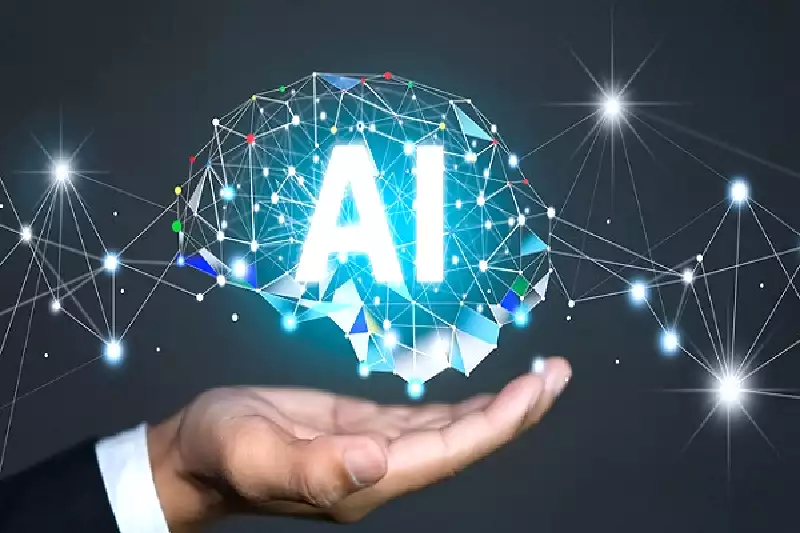Artificial Intelligence (AI) is one of the fastest growing fields in technology today. From healthcare to finance, retail to transportation, AI is changing the way we live and work. This article will provide an overview of the definition of AI, its brief history, and why it is relevant today. We will then explore the different types of AI and their key components, followed by a discussion of AI’s applications in industry and everyday life. Finally, we will delve into the ethical and social implications of AI, including bias and discrimination, job automation and unemployment, privacy and security concerns, and the future of work and society.

1. Introduction Artificial Intelligence
– Definition of Artificial Intelligence (AI) Artificial Intelligence refers to the development of computer systems that are capable of performing tasks that would normally require human intelligence, such as visual perception, speech recognition, decision-making, and language translation.
B. Brief history of AI and its evolution The history of AI can be traced back to the 1950s, when computer scientists first started exploring the potential for machines to mimic human intelligence. In the decades that followed, significant progress was made in the fields of machine learning, natural language processing, robotics, and computer vision, leading to the creation of AI systems that are capable of solving complex problems and performing tasks that were once only possible for humans to do.
C. Explanation of why AI is relevant today AI is relevant today because it has the potential to revolutionize the way we live and work. With the ability to automate routine tasks, analyze vast amounts of data, and make complex decisions, AI has the potential to greatly improve efficiency, reduce costs, and create new and innovative solutions to some of the world’s biggest problems.
2. Understanding AI

A. Types of AI
- Reactive Machines Reactive machines are AI systems that are capable of reacting to stimuli in real-time, such as playing a game of chess or recognizing an object in a video. They do not have the ability to store information or learn from past experiences.
- Limited Memory Limited memory AI systems have the ability to store information from past experiences, but they cannot use this information to form new decisions. This type of AI is often used in robotics for navigation and obstacle avoidance.
- Theory of Mind Theory of mind AI systems have the ability to understand the mental states and intentions of other entities, such as humans and other AI systems. This type of AI is still in its early stages of development, and is not yet widely used in practical applications.
- Self-Aware Self-aware AI systems have the ability to reflect on their own mental states and make decisions based on their understanding of themselves and their environment. This type of AI is still purely theoretical and has not yet been achieved in practical applications.
B. Key components of AI
- Machine Learning Machine learning is a type of AI that involves the use of algorithms to enable computer systems to improve their performance on a task without being explicitly programmed to do so.
- Natural Language Processing Natural language processing is a type of AI that involves the ability of computer systems to process and understand human language, including speech recognition and language translation.
- Robotics Robotics is the branch of AI that deals with the design and development of robots, including their control systems, sensors, and actuators.
- Computer Vision Computer vision is the field of AI that deals with the development of algorithms that enable computer systems to interpret and understand visual information, such as images and videos.
3. Applications of AI
Industry and Business
AI has made significant inroads in several industries, including healthcare, finance, retail, and transportation. In healthcare, AI is used to analyze large amounts of patient data to support diagnosis and treatment planning. In finance, AI is used to identify fraudulent transactions and monitor financial markets. In retail, AI is used to personalize customer experiences and improve supply chain management. In transportation, AI is used to optimize routes and improve safety.
Everyday life
AI is also becoming more integrated into our everyday lives. Smart home devices, such as Amazon Echo and Google Home, allow us to control our home environment through voice commands. Virtual personal assistants, such as Siri and Alexa, can help us manage our schedules and answer questions. Interactive customer service is becoming more prevalent, with companies using AI chatbots to handle customer inquiries and provide support.
Ethical and Social Implications of AI
Bias and Discrimination One of the biggest concerns with AI is the potential for bias and discrimination. AI algorithms are only as unbiased as the data they are trained on, and if that data contains systemic biases, the AI system will also reflect those biases. This can result in discriminatory outcomes in areas such as hiring, lending, and criminal justice.
Job Automation and Unemployment
Another concern is the potential for job automation and unemployment. As AI continues to become more advanced, there is a fear that it will replace human workers in many industries. While this could lead to increased efficiency and productivity, it could also result in widespread unemployment and a decrease in job opportunities.
Privacy and Security Concerns
Privacy and security are also important considerations with AI. As AI systems collect and process large amounts of personal data, there is a risk that this data could be used for malicious purposes, such as identity theft or targeted advertising. Additionally, AI systems can be vulnerable to hacking, which could result in the compromise of sensitive information.
The Future of Work and Society
AI will continue to play a significant role in shaping the future of work and society. As AI becomes more integrated into our lives, it is important to consider the ethical and social implications of this technology and work towards solutions that ensure it is used in a responsible and equitable manner.
Conclusion
In conclusion, AI is a rapidly evolving technology with the potential to transform many aspects of our lives. From improving healthcare and finance to making our homes smarter and our customer service more efficient, the applications of AI are many. However, it is also important to consider the ethical and social implications of this technology and work towards solutions that ensure it is used in a responsible and equitable manner. As AI continues to advance, it is important to stay informed and involved in the discussion about its future.
4. Ethical and Social Implications of Artificial Intelligence
Introduction Artificial
Intelligence (AI) has made great strides in recent years, becoming an increasingly integrated part of our lives and businesses. While the applications of AI are numerous and exciting, there are also important ethical and social implications to consider. In this article, we will delve into these implications and explore how they may impact our future.
Bias and Discrimination
One of the most significant ethical concerns with AI is the potential for bias and discrimination. AI algorithms are only as unbiased as the data they are trained on, and if the data contains systemic biases, the AI system will also reflect those biases. This can result in discriminatory outcomes in areas such as hiring, lending, and criminal justice. To mitigate this risk, it is essential that AI systems are trained on diverse and inclusive data sets, and that ongoing efforts are made to monitor and correct for bias.
Job Automation and Unemployment
Another concern with AI is the potential for job automation and unemployment. As AI continues to become more advanced, there is a fear that it will replace human workers in many industries. While this could lead to increased efficiency and productivity, it could also result in widespread unemployment and a decrease in job opportunities. It is important to address this concern by investing in education and training programs that help workers develop the skills needed for the jobs of the future.
Privacy and Security Concerns
Privacy and security are also critical considerations with AI. As AI systems collect and process large amounts of personal data, there is a risk that this data could be used for malicious purposes, such as identity theft or targeted advertising. Additionally, AI systems can be vulnerable to hacking, which could result in the compromise of sensitive information. To protect against these risks, it is essential to have strong privacy and security regulations in place and to ensure that AI systems are built with robust security features.
The Future of Work and Society
AI will continue to play a significant role in shaping the future of work and society. As AI becomes more integrated into our lives, it is important to consider the ethical and social implications of this technology and work towards solutions that ensure it is used in a responsible and equitable manner. This may include the development of ethical frameworks for AI and the creation of new jobs and industries that build on the advancements in AI.
Conclusion
In conclusion, while the applications of AI are numerous and exciting, it is important to consider the ethical and social implications of this technology and work towards solutions that ensure it is used in a responsible and equitable manner. This may include addressing the potential for bias and discrimination, mitigating the risk of job automation and unemployment, and ensuring the privacy and security of personal data. By being proactive in addressing these concerns, we can ensure that the future of AI is one that benefits everyone.






